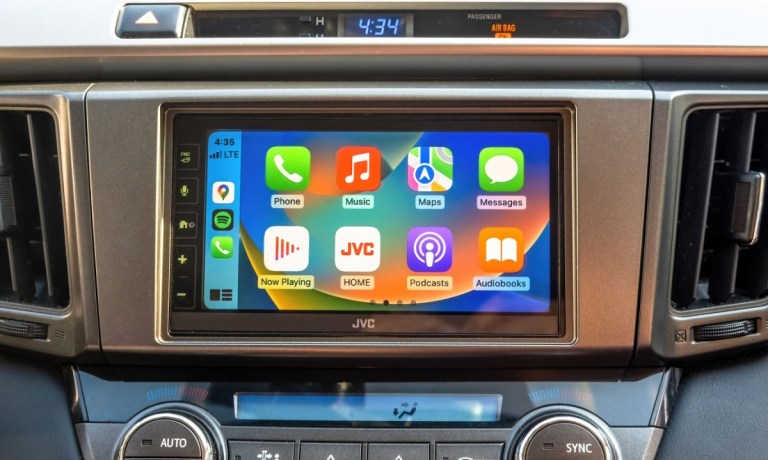Apple’s CarPlay Gains New Weight as EV Plan Stalls

Last month, Apple announced it was sunsetting its plans to enter the electric vehicle space.
Now, the company’s CarPlay offering has become the tech giant’s sole hope of making an impact on the automotive market, Bloomberg News argued in a report Sunday (March 17).
As that report noted, Apple’s newly envisioned CarPlay is set to launch this year, but thus far, just Porsche and Aston Martin have announced formal support. Part of the problem, Bloomberg’s Mark Gurman wrote, is that Apple’s design team must work with carmakers to create a bespoke interface and style for each model.
In addition, the limited rollout has focused on high-priced cars, with the only confirmed model to be getting the new CarPlay is the Aston Martin DB12, which sells for $245,000.
“On top of that, I’m told that Apple has no plan in place to make money from the new software,” Gurman wrote. “As with the current version of CarPlay, the company isn’t looking to charge users for it — or force car manufacturers to pay to install it.”
The news follows reports from last month that Apple was abandoning its EV plans, putting to bed what was referred to in-house as Project Titan. The effort, which began 10 years ago, spent billions to create a fully autonomous EV product featuring luxury interiors and voice-guided driver experiences.
“Facing ongoing setbacks, the company’s most recent approach to salvage its EV division was pushing back the car’s eventual launch to 2028 and reducing the self-driving benchmark from Level 4 to Level 2+ technology, turning the car into more of a standard EV than a truly autonomous machine,” PYMNTS wrote. “But even with those concessions, it was not to be.”
There were signs even before this news that Apple’s commitment to entering the automotive market had begun to falter. For example, January brought the news that DJ Novotney, a key veteran executive at Apple within Project Titan, was departing the company after more than two decades to take a position with electric vehicle maker Rivian Automotive.
Meanwhile, PYMNTS wrote earlier this month that the connected car space was facing a variety of challenges, including security concerns, with the U.S. government announcing a probe into the potential security risks associated with connected vehicles.
“Central to these concerns is the fear that malicious entities could exploit vulnerabilities to gain unauthorized access to sensitive data or even seize control of the vehicles,” PYMNTS wrote. “The repercussions of such breaches could extend far beyond personal safety, posing threats to national security and critical infrastructure.”